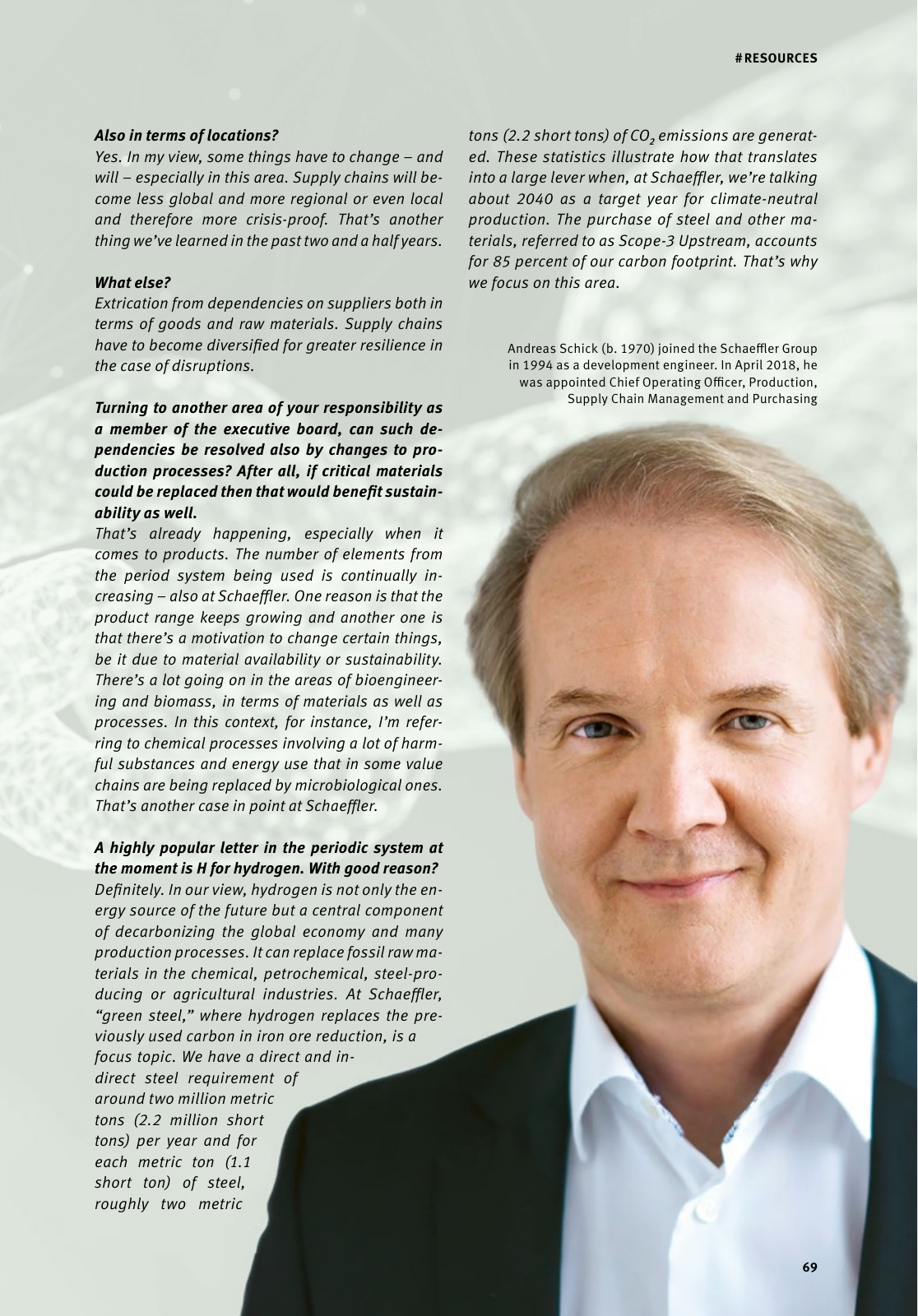Also in terms of locations Yes In my view some things have to change and will especially in this area Supply chains will be come less global and more regional or even local and therefore more crisis proof That s another thing we ve learned in the past two and a half years What else Extrication from dependencies on suppliers both in terms of goods and raw materials Supply chains have to become diversifi ed for greater resilience in the case of disruptions Turning to another area of your responsibility as a member of the executive board can such de pendencies be resolved also by changes to pro duction processes After all if critical materials could be replaced then that would benefi t sustain ability as well That s already happening especially when it comes to products The number of elements from the period system being used is continually in creasing also at Schaeffl er One reason is that the product range keeps growing and another one is that there s a motivation to change certain things be it due to material availability or sustainability There s a lot going on in the areas of bioengineer ing and biomass in terms of materials as well as processes In this context for instance I m refer ring to chemical processes involving a lot of harm ful substances and energy use that in some value chains are being replaced by microbiological ones That s another case in point at Schaeffl er A highly popular letter in the periodic system at the moment is H for hydrogen With good reason Defi nitely In our view hydrogen is not only the en ergy source of the future but a central component of decarbonizing the global economy and many production processes It can replace fossil raw ma terials in the chemical petrochemical steel pro ducing or agricultural industries At Schaeffl er green steel where hydrogen replaces the pre viously used carbon in iron ore reduction is a focus topic We have a direct and in direct steel requirement of around two million metric tons 2 2 million short tons per year and for each metric ton 1 1 short ton of steel roughly two metric tons 2 2 short tons of CO emissions are generat ed These statistics illustrate how that translates into a large lever when at Schaeffl er we re talking about 2040 as a target year for climate neutral production The purchase of steel and other ma terials referred to as Scope 3 Upstream accounts for 85 percent of our carbon footprint That s why we focus on this area Andreas Schick b 1970 joined the Schaeffl er Group in 1994 as a development engineer In April 2018 he was appointed Chief Operating Offi cer Production Supply Chain Management and Purchasing 69 RESOURCES

Hinweis: Dies ist eine maschinenlesbare No-Flash Ansicht.
Klicken Sie hier um zur Online-Version zu gelangen.
Klicken Sie hier um zur Online-Version zu gelangen.